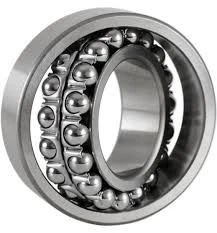
Dec . 11, 2024 09:14 Back to list
Analysis of Tapered Roller Bearing Failures and Their Root Causes
Taper Roller Bearing Failure Analysis
Taper roller bearings are widely used in various applications due to their ability to accommodate both radial and axial loads. These bearings consist of an inner ring, an outer ring, tapered rollers, and a cage. While they provide excellent performance, they are not immune to failure. Understanding the causes and mechanisms of taper roller bearing failures is essential for improving reliability and maintenance practices.
Common Causes of Failure
1. Contamination One of the primary reasons for taper roller bearing failure is contamination. Foreign particles, such as dirt, dust, and metal debris, can enter the bearing due to inadequate sealing or improper handling. Contaminants can lead to abrasive wear, pitting of the rollers and races, and ultimately, premature failure.
2. Improper Lubrication Lubrication is vital for the performance and longevity of taper roller bearings. Insufficient lubrication can cause excessive friction, leading to overheating and wear. On the other hand, over-lubrication can result in increased operating temperatures and grease degradation. Choosing the right lubricant and maintaining proper lubrication intervals are crucial for the longevity of these bearings.
3. Misalignment Proper mounting and alignment of taper roller bearings are critical for their operation. Misalignment can occur due to installation errors or deformation of the housing and shaft. Misaligned bearings can experience uneven load distribution, leading to increased stresses, premature wear, and eventual failure.
4. Overloading Taper roller bearings are designed to handle specific load capacities. Subjecting them to loads beyond their rated capacity can cause material fatigue, leading to spalling and surface damage. It is vital to consider dynamic and static load ratings while selecting bearings for specific applications to avoid overload situations.
5. Fatigue Failure Fatigue is a common mode of failure in taper roller bearings, usually originating from cyclic loading. Repeated stress cycles can lead to the development of micro-cracks in the bearing material, which eventually progress to larger cracks and spalling. Regular inspections and condition monitoring can help detect early signs of fatigue.
taper roller bearing failure analysis

Symptoms of Failure
Detecting the early symptoms of taper roller bearing failure can help in preventing catastrophic breakdowns. Some common indicators include
- Unusual Noise Grinding, rattling, or knocking sounds may indicate that the bearing is deteriorating. - Vibration Increased vibration levels can signal misalignment, wear, or other issues within the bearing assembly. - Temperature Increase Elevated operating temperatures can indicate inadequate lubrication or excessive load, both of which can lead to early failure.
Prevention and Maintenance
To mitigate the risk of taper roller bearing failure, a proactive maintenance strategy should be implemented. This includes
- Regular Inspections Frequent visual and instrumental inspections can help detect issues before they escalate. - Proper Lubrication Practices Utilizing the correct type of lubricant and adhering to recommended lubrication schedules is crucial. - Alignment Checks Ensuring proper alignment during installation and periodically thereafter can reduce the chances of misalignment-related failures. - Load Monitoring Regularly assessing the load conditions and ensuring they remain within the bearing’s rated capacity can enhance bearing lifespan.
Conclusion
Taper roller bearings play a vital role in machinery and equipment, yet they are susceptible to various failure modes. Understanding the causes of failure, recognizing the symptoms, and implementing preventive measures can significantly enhance their reliability. Through diligent maintenance and monitoring practices, industries can minimize downtime and enhance operational efficiency, leading to more sustainable and productive operations.
Latest news
-
Premium Deep Groove Ball Bearings | High Speed & Reliability
NewsAug.29,2025
-
Durable Scaffolding Clamps - Secure & Reliable Tube Connectors
NewsAug.28,2025
-
Common Failures in Thrust Ball Bearings and Solutions
NewsAug.22,2025
-
How Tapered Roller Bearings Can Take Shock Loads
NewsAug.22,2025
-
Angular Bearings in High-Precision Spindles
NewsAug.22,2025
-
The Impact of Misalignment on Cylindrical Roller Bearing Performance
NewsAug.22,2025
